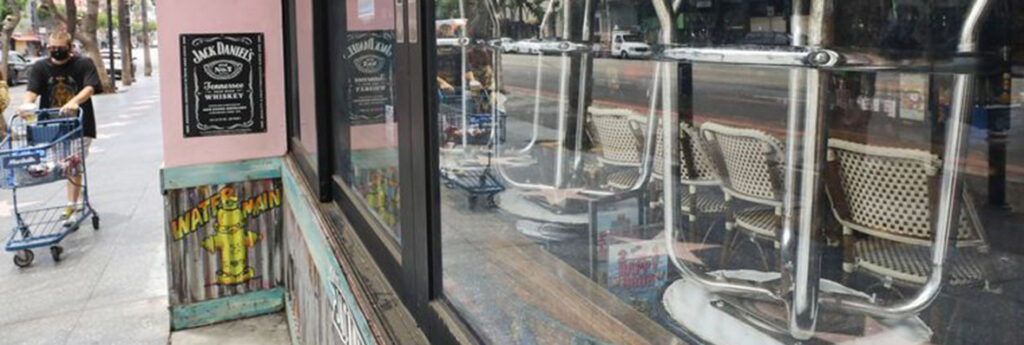California’s financially battered restaurants filed government claims Monday to recover more than US $100 million in fees for liquor and health permits and tourism charges that they say were assessed even though their businesses were shuttered or only partially operating under long-running coronavirus orders.
Few industries have been hit as hard during the pandemic as restaurants, which in California were ordered closed, reopened, closed for a second time and then allowed to welcome customers again, though with restrictions.
Those rules vary in the state’s 58 counties and have limited some eateries to takeout and delivery service or outdoor-only dining. Thousands of restaurants have closed permanently.
Owners say one thing has remained constant amid the turmoil. State and county governments have continued to charge fees for liquor licenses, health permits and tourism assessments – even though the restaurants were closed down by government orders or permitted to operate with limited capacity and dining.
The owners contend they have been being unjustly punished for following the law and are being charged for permits they can’t use.
“The irony is, they did what they were told and the very entity that told them to close is keeping these fees,” said attorney Brian Kabateck, who is representing restaurants that filed claims against the state and against Los Angeles, Orange, Sacramento, San Diego and Monterey counties,.
Additional claims will be filed in coming days for restaurants in San Francisco and in Fresno and Placer counties. The move is supported by the California Restaurant Association.
“Somebody has to tell them this is wrong and to return the money,” Kabateck said.
Kabateck estimated the fees could exceed $100 million statewide.
A government claim, filed for individual restaurants and on behalf of other businesses in the sector, is a required initial step before filing a class-action lawsuit against government agencies in California. Officials have 45 days to respond.
The restaurant association previously urged Gov. Gavin Newsom to hold a special session of the Legislature to work on an aid package for their businesses.
Under state rules, counties with the highest infection rates are limited to outdoor dining only, along with takeout and delivery.
If those rates improve, restaurants can operate with 25% capacity indoors or 100 patrons, whichever is fewer. Even under the least restrictive rules, indoor capacity can only reach 50%.
Industry officials have said the rules will doom many more restaurants. California has nearly 60,000 restaurants that employ approximately 1.5 million workers.
“Even when the restrictions are lifted, the devastating impact on the restaurant industry will extend for years,” Jot Condie, who heads the restaurant association, said in a statement. “Easing fees would help enable establishments to stay open and keep vulnerable workers employed.”

